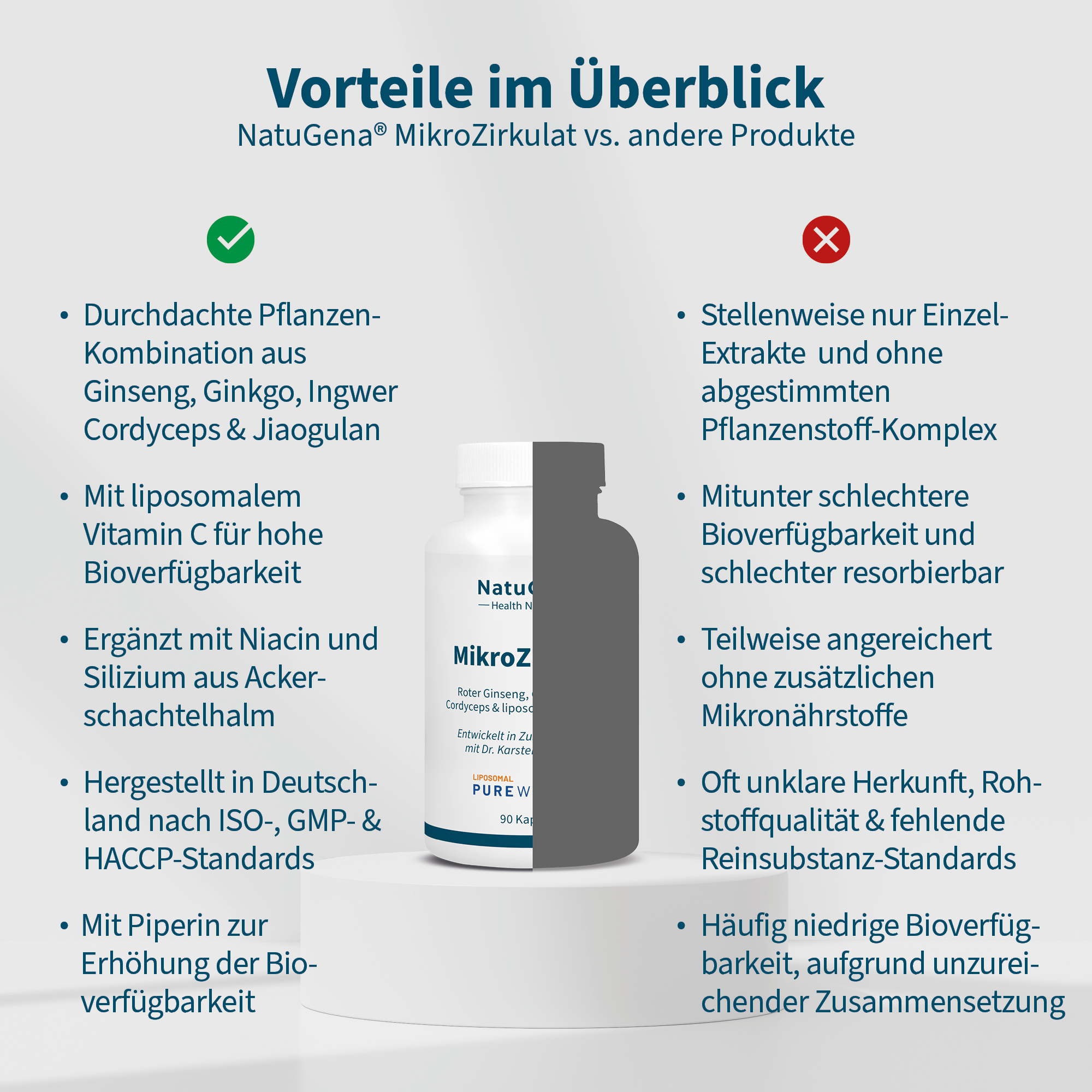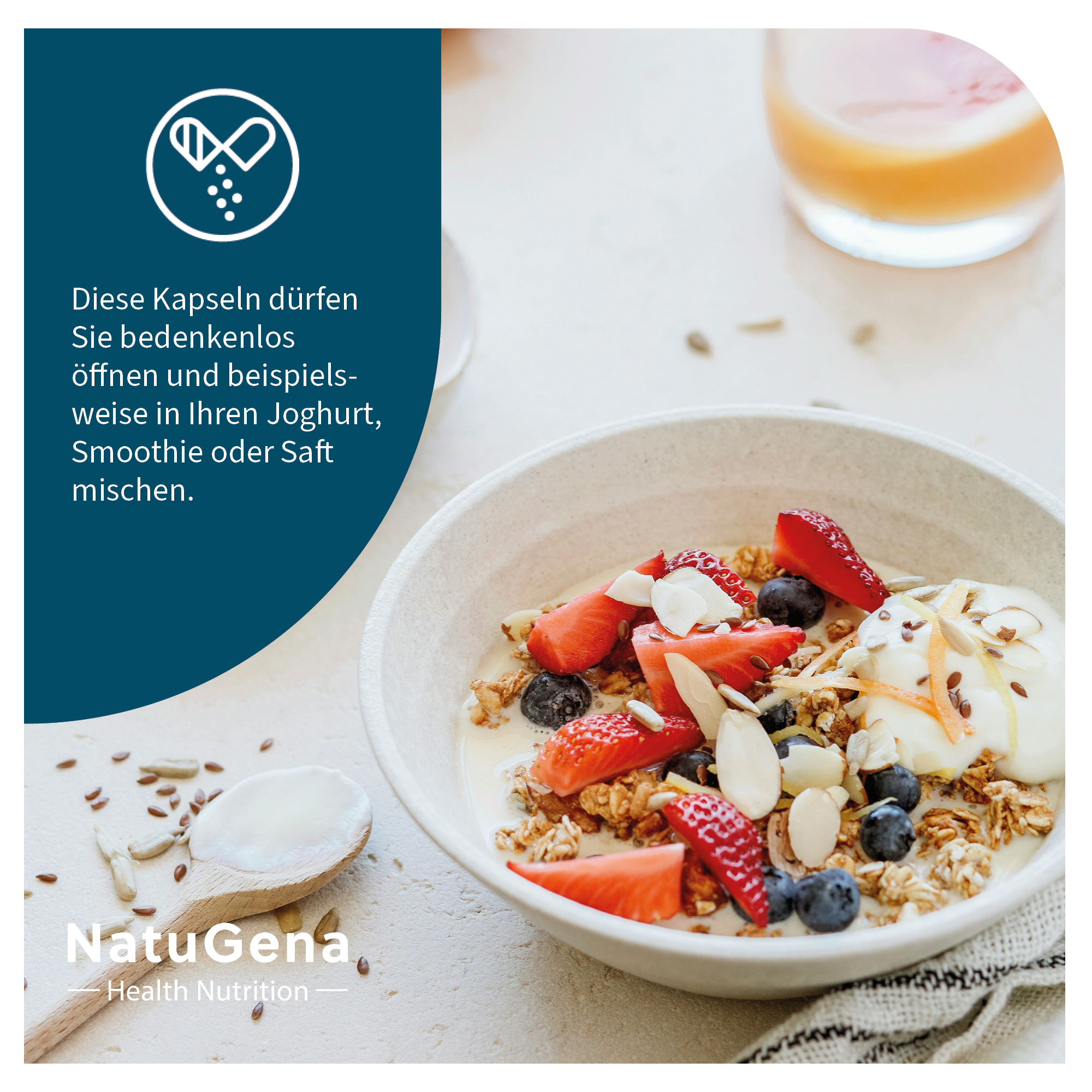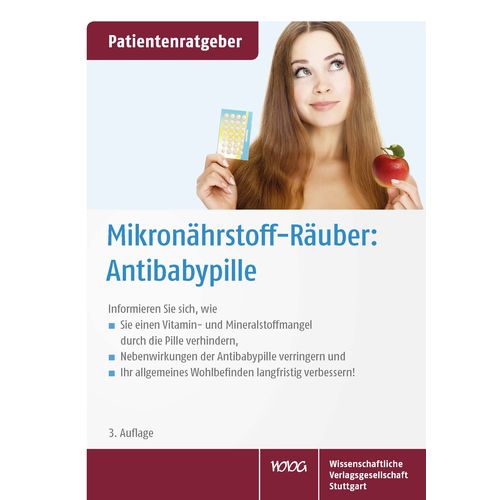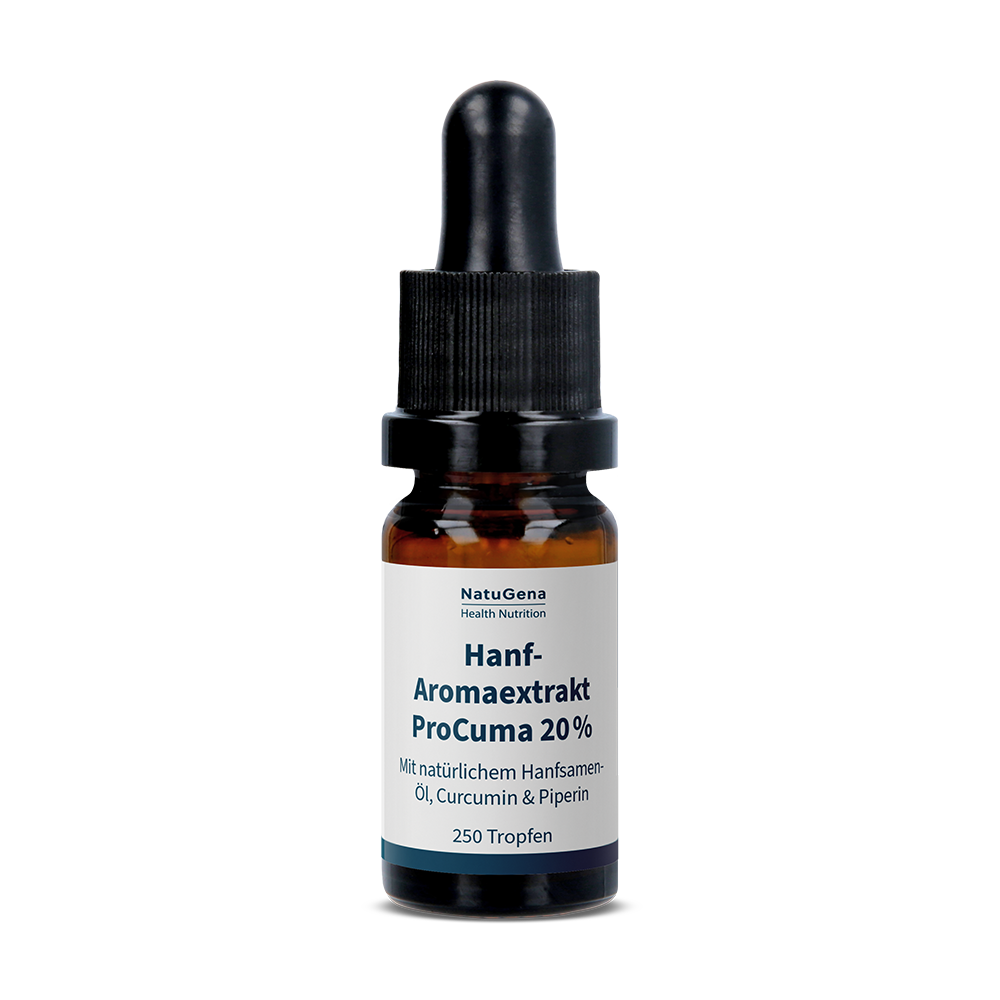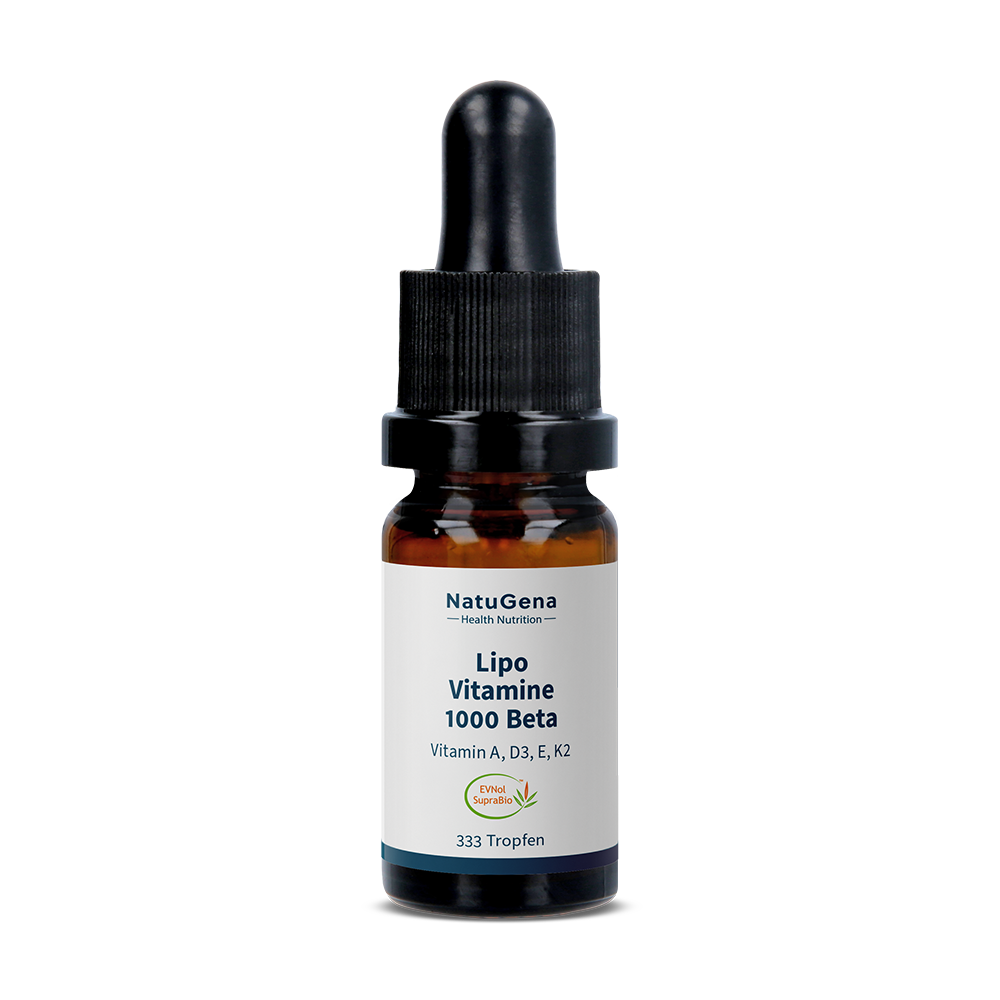NatuGena MikroZirkulat – A targeted combination of traditional plant extracts with liposomal vitamin C (PureWay-C®) and vitamin B3. This unique formulation, developed in collaboration with Dr Karsten Ostermann, features jiaogulan, cordyceps, ginkgo, ginger, and red ginseng. 90 vegan capsules provide a 30-day supply.
- Red Ginseng & Ginkgo biloba: Traditionally used botanicals rich in ginsenosides and flavonol glycosides
- Cordyceps sinensis & Jiaogulan: Time-honoured herbal extracts with roots in Asian traditions
- Horsetail (Equisetum arvense): A natural source of silica, also containing flavonoids and minerals
- Ginger: Known for its essential oils and pungent active compounds
- PureWay-C®: Liposomal form of vitamin C for superior delivery
- Piperine: Extracted from black pepper to enhance nutrient absorption
Our body relies on a vast network of fine blood vessels, down to the tiniest capillaries, to transport oxygen and nutrients efficiently. MikroZirkulat is designed for those who want to enrich their daily routine with powerful plant-based ingredients. The formulation combines liposomal vitamin C with traditional botanicals from diverse cultures.
How does vitamin C support vascular health?
Vitamin C is a central ingredient in MikroZirkulat – included as PureWay-C®, a patented liposomal vitamin C known for its high bioavailability. This essential vitamin supports normal collagen formation, which in turn contributes to the normal function of blood vessels. It is complemented by bioactive vitamin B3 (niacinamide), which supports normal energy metabolism and contributes to the normal function of the nervous system.
What is special about the plant extracts in MikroZirkulat?
Cordyceps, a fungus native to the high altitudes of Tibet, has long been treasured for its unique properties. Jiaogulan, often called the “herb of immortality,” is a staple in traditional tea culture in rural South China. Red ginseng, originally from Northeast China and Korea, has been valued for centuries as a revered root and is often referred to as the “root of life.”
Ginkgo, native to East Asia, is sometimes called a “living fossil.” Its leaves contain flavonol glycosides and terpene lactones such as ginkgolides and bilobalide, which are well-known secondary plant compounds with antioxidant properties. Ginger also has a long history in Asian cuisine and wellness practices. Completing the blend is horsetail, a wild herb mentioned in early European herbal texts and traditionally appreciated for its plant-based silica content.

